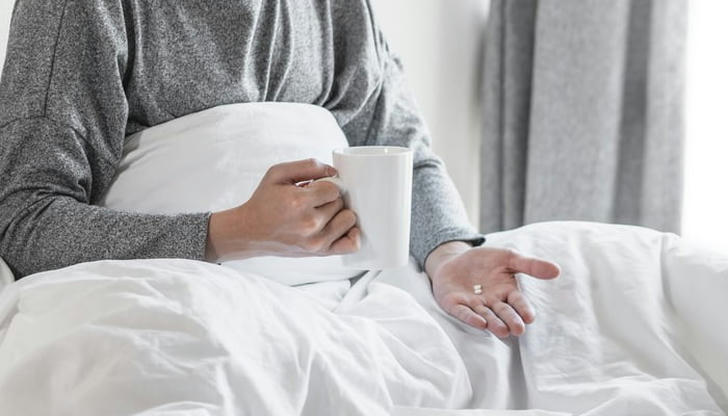Things You Need to Know About Diazepam
Diazepam—also known by its brand name Valium—is one of those meds you might have heard of but didn't really know what it does. It's classified as a benzodiazepine, which is a fancy term for a type of drug that tweaks how certain chemicals in your brain work. These chemicals, called neurotransmitters, play a big role in your mood, anxiety levels, and even muscle movement.

Uses of Diazepam
So, why do doctors prescribe diazepam? Well, it's mainly used to treat anxiety disorders. You know, those times when your mind won't stop racing, and you feel like you're stuck in a loop of worry? Yeah, diazepam can help calm those nerves. It's also handy for folks dealing with alcohol withdrawal symptoms. Imagine feeling shaky, sweaty, and just plain uncomfortable when you're trying to kick the booze—diazepam can take the edge off those rough symptoms.
But wait, there's more! Sometimes, diazepam teams up with other meds to tackle muscle spasms and stiffness. Picture this: your muscles are as tight as a drum, and moving feels like a chore. That's where diazepam steps in to loosen things up a bit, helping you move more comfortably.
Warnings
Diazepam isn't your average over-the-counter remedy you pop whenever you feel like it. Nope, it's got some serious things to consider. One biggie is how it can slow down your breathing, especially if you've been taking opioid pain meds, sipping on some alcohol, or even using other drugs that calm your system down. If you misuse diazepam—especially by taking it without a prescription—things can get dicey fast. We're talking addiction, overdose, or in the worst-case scenario, death. And nobody wants that.

That's why it's crucial to stash your diazepam in a safe spot where curious kids or anyone who might misuse it can't get their hands on it. Always follow the advice of your doctor, especially when it comes to stopping diazepam. Quitting cold turkey can cause some gnarly withdrawal symptoms that can stick around for months. Seriously, your body and brain can go through some serious adjustments, so it's best to taper off under your doctor's supervision.
Before you dive headfirst into diazepam, give your doc the lowdown on any health issues you've had. If you've struggled with breathing problems, glaucoma (that's eye stuff), liver or kidney issues, or if seizures have been a thing for you (unless you're using diazepam to treat them), your doc needs to know. Oh, and if you've ever battled with drugs or alcohol, that's another important nugget to share. Your mental health is just as crucial—let your doctor in on any history of depression, mood swings, or if you've ever had thoughts about harming yourself.
Speaking of no-gos, diazepam isn't for everyone. It's a big fat "nope" if you've got certain conditions like myasthenia gravis (a muscle weakness condition), serious breathing problems, narrow-angle glaucoma, or untreated sleep apnea. Oh, and babies younger than six months old shouldn't touch diazepam unless your doctor says otherwise.
Now, if you're preggers or planning to be, diazepam isn't your go-to. Using it during pregnancy can spell trouble for your unborn babe—think of withdrawal symptoms that need medical attention right after birth. And if you're breastfeeding, diazepam can slip into your milk, so it's best to steer clear of it altogether.
How to Take Diazepam
When it's diazepam time, follow your doc's orders to the letter. Stick to the dose they prescribe—no more, no less, and definitely not longer than they recommend. Usually, it's only meant for short-term relief, and if you're still taking it after four months, your doc will want to check in and make sure everything's A-OK.
Now, what if you forget a dose? It happens to the best of us. If you realize you've missed your diazepam dose, take it as soon as you remember. But if it's almost time for your next scheduled dose, skip the one you missed. Whatever you do, don't double up—taking two doses at once can throw your system for a loop.
And here's a heads-up on overdosing: it's a big deal. If you think you've taken too much diazepam or you notice someone who's in that boat, call emergency services pronto. Overdose symptoms can be serious business, from extreme drowsiness and muscle weakness to trouble breathing or even slipping into a coma.
While you're on diazepam, it's wise to steer clear of booze. Mixing alcohol with diazepam can amp up its side effects to a dangerous level, and nobody wants to deal with that drama. Oh, and watch out for grapefruit and its juice—they can mess with how diazepam works in your body, so it's best to keep them off your menu while you're taking this med.

Side Effects
Diazepam might make you feel drowsy, tired, or even a bit weak in the muscle department. Balance might be a bit wonky too, so take it easy when you're up and about. Older folks might feel the sleepy vibes a bit stronger, which could increase the risk of taking a tumble. If you notice any signs of an allergic reaction—like hives, trouble breathing or swelling in your face or throat—don't wait around. Get help ASAP.
And if you've got any sudden changes in mood or behavior—think new or worsening depression or anxiety, panic attacks, trouble sleeping, or feeling super impulsive—give your doc a ring. Even if it's feeling restless, agitated, or like you're more active or chatty than usual, it's worth a chat with your healthcare provider.
Here's the scoop on the endgame with diazepam: once you stop taking it, keep an eye out for any lingering withdrawal symptoms. They can hang around for up to a year or even longer after you've kicked the habit. These can range from ongoing anxiety and depression to funky stuff like memory issues, trouble sleeping, or even weird sensations under your skin.
If any of this sounds familiar, don't sweat it. Just give your doctor a shout for some guidance. Remember, this is just a basic rundown. Your healthcare provider is the real deal when it comes to diazepam and how it fits into your life. Always check in with them for the inside scoop on staying safe and feeling good.
